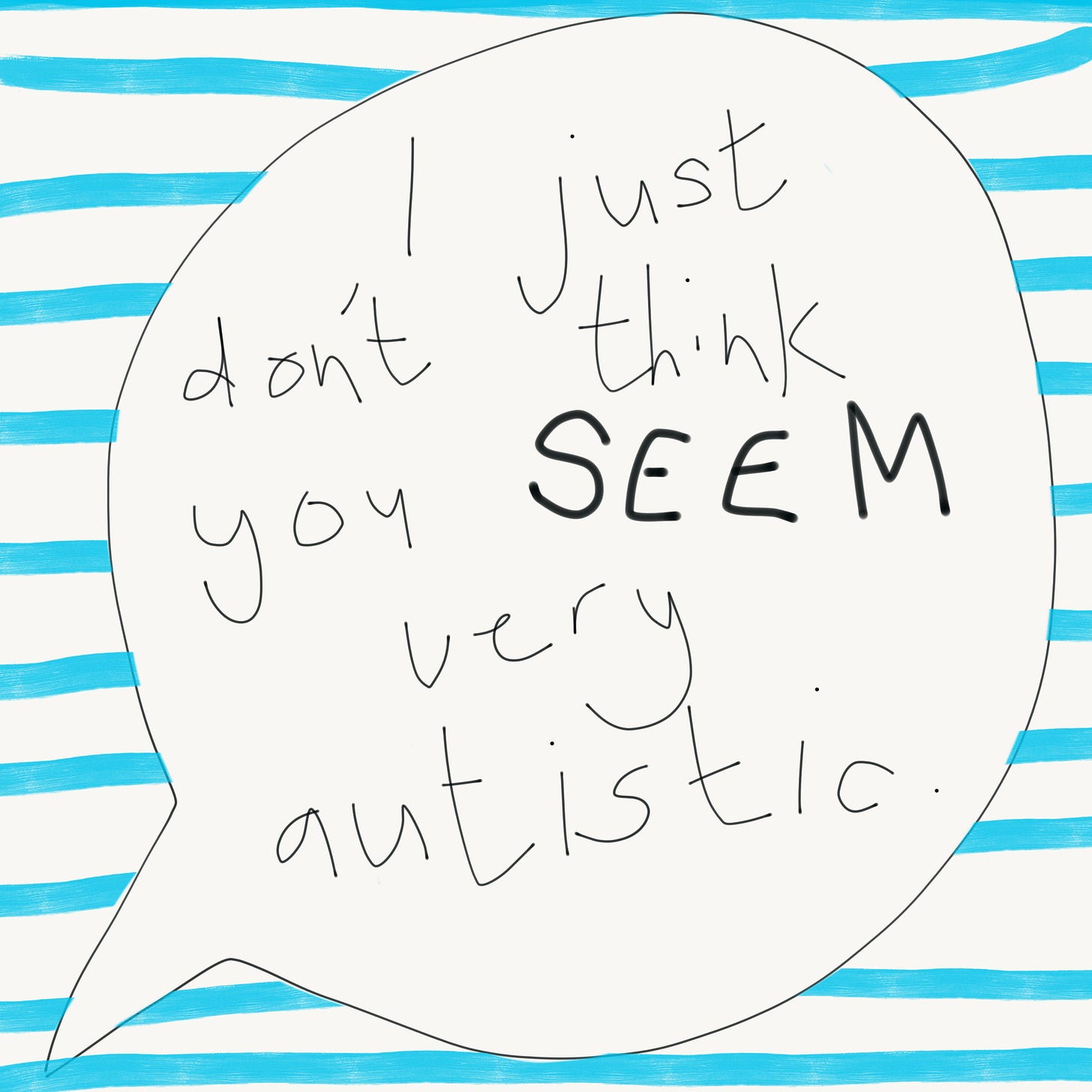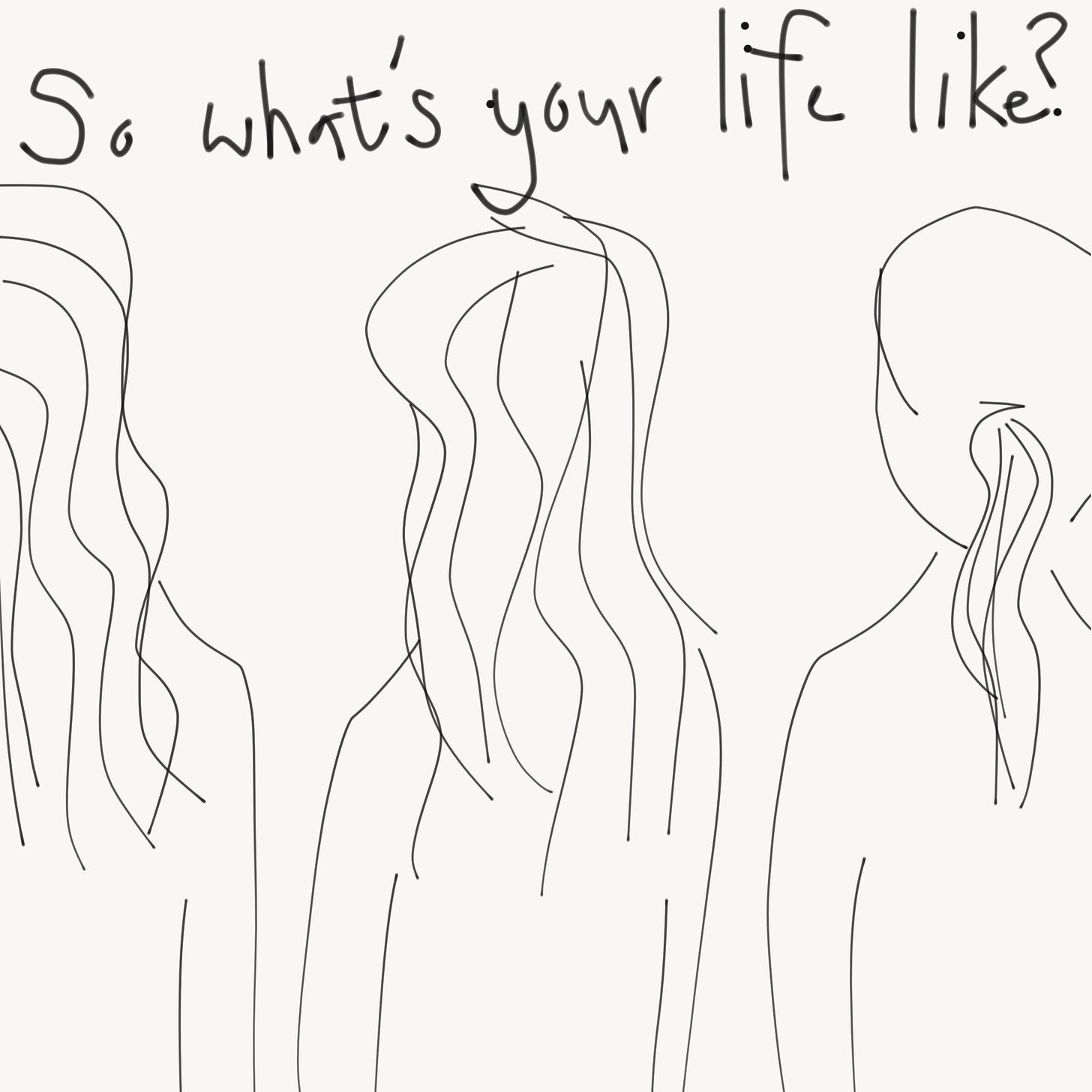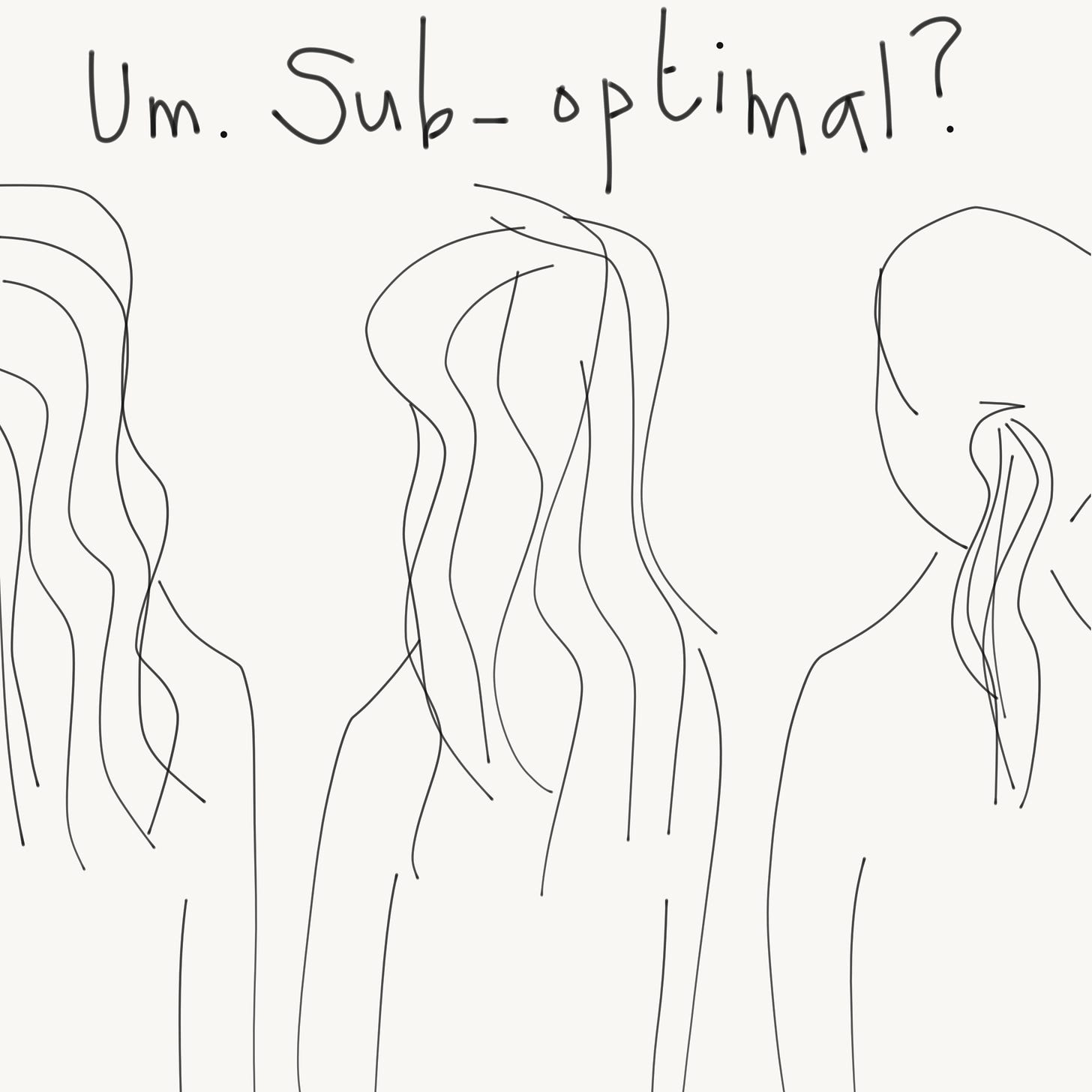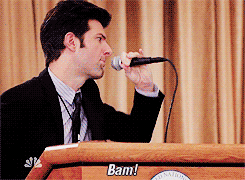Diagnosis is Synonymous with Self-understanding
Part II: Does life get more difficult post-diagnosis?
It’s not easy to get a diagnosis of autism as an adult. And there aren’t many (any?) services available. And yet more and more people are pursuing diagnoses.
Why? What is going on here? What do we feel we have to gain?
Last week, I wrote about how I feel more autistic post-diagnosis and how life seems harder and how I feel better off.
‘Seems’ is italicised here because it is the people around me who perceive me to be struggling more. For me, diagnosis feels like a holy relief, partly because it has given me the language with which to articulate the struggle.
So as a diagnosed autistic person, I get it. I know what there is to gain from diagnosis because I have gained it.
Self-understanding.
Self-compassion.
Pride.
A sense of resilience.
Each of these beautiful words is hard-won and meaningful.
I used to try for self-compassion before diagnosis but self-frustration frequently won out. I could not understand why I made the careless mistakes I did; why I struggled so much to do simple things and this could often trigger a shame cycle about why I had generally made so many inexplicable choices throughout my life.
And so my relationship with myself took another beating.
Diagnosis reframed my whole experience. Talking with other autistic adults about life on this planet allows me to continue to reframe it.
And my self-relationship finally begins to bloom without resistance.
Now I write about autism and late diagnosis, friends, acquaintances and strangers contact me to share they have been or are hoping to be diagnosed.
We have these funny, intimate, relief-filled conversations in messages, and I am happy for them and I hope understanding themselves better will help them feel better about themselves like it has me. I hope diagnosis (or self-diagnosis) will allow them to adjust their life to suit them more.
I wonder too how they will find life beyond diagnosis. I hope they won’t be too disappointed.
Because there are no services. The general misunderstanding in mainstream society (and the medical profession) is shocking once you begin to understand autism better yourself.
I have been disappointed. And yet I have no regrets about pursuing diagnosis.
I chased it down like a dog in pursuit of a tennis ball not because I wanted to be autistic but because I wanted to understand myself.
In spite of the lack of services; in spite of the fact that many people in my life aren’t accommodating my difference at all (and sometimes unfortunately I include myself in this group); in spite of the general lack of understanding, I am still glad to have the diagnosis.
Because diagnosis is synonymous with self-understanding.
That was why I was so desperate to get it. Why I ran so hard and so fast. Why I paid £700+ for the privilege.
I read around the question of why autism seems worse post-diagnosis, and I found an insightful new article from Atherton, G., Edisbury, E., Piovesan, A. et al. in Autism Through the Ages: A Mixed Methods Approach to Understanding How Age and Age of Diagnosis Affect Quality of Life.
“Though autistic adults who have received a diagnosis later in life primarily report it as a positive experience (Leedham et al., 2020; Lewis, 2016), the journey to diagnosis later rather than earlier in life may have resulted in early identity formational experiences that were sub-optimal.”
Sub-optimal. Yes! That describes many of my identity formation experiences. Ugly. Confusing. Weird. Upsetting.
For a long time life seemed to be a series of stressful and confusing situations alleviated by the sweet relief provided courtesy of alcohol. Naturally, I always felt bad about that. Why on earth hadn't I understood how to live better?!
Now I know I was missing crucial information and understanding and support. I didn’t have anyone to show me where I had deficits and so I scrabbled to hide them. And it was exhausting. And that sucks.
But I wasn’t alone. There are thousands of us who had similar experiences.
Bewildered in the neurotypical wilderness.
And somehow that helps.
I was not the only one who lacked the skills to thrive in this capitalist dystopia (and no, of course, it’s not only autistic people who struggle out here) not the only one who got sensory overload every time I tried.
I was not the only one who didn’t know how to interpret their feelings (an important ability for building a nice life) or how to ask for help (essential for happiness on this planet) or even that I needed help.
Say hi, if you relate.
More from the article:
“The findings suggested that, although the age of autistic people was not related to their quality of life, their diagnostic age was, with a later diagnosis associated with a poorer quality of life.”
Later diagnosis is associated with poorer quality of life.
Because diagnosis is synonymous with self-understanding.
Diagnosis can also signal a decrease in ‘masking’, something autistic people do to appear normal, the article suggests, though I would correct that as something we do to avoid being mocked, belittled, judged and hurt.
“Compensation in this way, however, is not necessarily positive or indicative of ‘improvement.’ While it may benefit an autistic person in some spheres, for most, the costs of camouflaging outweighs the rewards (Mandy, 2019).”
Yep. I seem better when I mask more. But I feel worse. So f*** masking.
“Receiving a diagnosis may also help reduce the urge to mask autistic symptoms (Bradley et al., 2021). Once diagnosed, autistic people feel more comfortable not conforming to neurotypical behavioral expectations. In this sense, it may be that there are aspects of identifying as autistic, and being made aware of the supports available, that are in and of themselves tied to QoL [quality of life]. This suggests that a diagnosis in and of itself, irrespective of actual usage of services, may help improve wellbeing.”
Mic drop.
So there we go. Academia has validated our experience. And many things we all know intuitively can now be bandied about more authoritatively. Hurray for research!
As usual, I want to hear from you. How has diagnosis been for you? Do you relate to my experience? Have I written anything dumb and insulting? I always love to hear your takes.
Read
If you like my writing and doodling (and can afford it), then please join my elite crew of PAID subscribers. You will get chapters of my upcoming novel, When the Earth Could Breathe, and I will be able to write and doodle more for your enjoyment. (I enjoy it, too - IS THAT A CRIME?)
Paid subscribers get access to private chats, and I’m working on more goodies. What would you like? Anti-social social events? Drawing club? Reading together time? (Okay, that’s what I would like.) Maybe meetings to share about how to live better? AA but about being autistic?
And if that’s not for you, then please join my quest to help autistic people live better, by sharing this newsletter. 😻
You can connect with the Autistic community on Twitter. If you have a question, use #ActuallyAutistic or #AskingAutistics (or both). You can also visit The Autism Self Advocacy Network and the Autistic Not Weird Facebook page and website.
Chelsey Flood is the author of Infinite Sky and Nightwanderers, and a senior lecturer in creative writing at UWE in Bristol. She writes about freedom, addiction, nature and love at Beautiful Hangover, and is also working on a non-fiction book about getting sober, and a new YA novel.








Thanks Chelsey, I enjoy reading your articles!
Brilliant to read more of your work, I just finished a book called awakening to autism and I learnt so much which encouraged continues to help me ask for my special needs to be me because it helped me to understand myself and my frontal lobe after excercise mindfulness class , yoga and Pilates is relaxed enough to deal with my autistic behaviour side and coherently advocate for myself. It is hard work and my my frontal lobe is going berserk I find I get so scared of living but once I do the thin I am avoiding and resisting I feel better different , like a problem solver
I could never do this if I used alcohol, food in between meals and did not replace it with the activity that take time to calm my nervous system
My recent problems are being angry so much of the time and learning what to do with it after I have admitted it.
Hope it helps